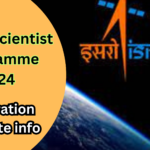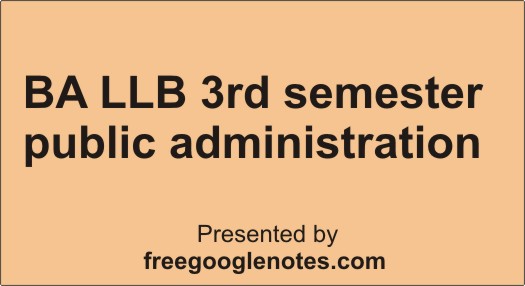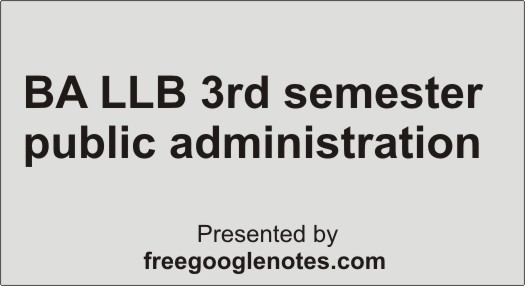BA LLB first year first semester political theory sample question answer EXECUTIVE AND JUDICIARY: In this post you read about EXECUTIVE AND JUDICIARY,political theory notes for BA LLB , Q. 1. Define the term ‘Executive’ and discuss its various forms. Define ‘Executive’ and differentiate between (a) Real and National Executive. (b) Parliamentary and Presidential Executive. (c) Political and Permanent Executive. (d) Singular and Plural Executive. Q. 2. Discuss main functions of the executive in a modern state. Q. 3. Write a short essay on the functions performed by the judiciary in a Modern State.
Q. 1. Define the term ‘Executive’ and discuss its various forms. Define ‘Executive’ and differentiate between (a) Real and National Executive. (b) Parliamentary and Presidential Executive. (c) Political and Permanent Executive. (d) Singular and Plural Executive.
Ans. The legislature, which is one of the most important organs of government, is responsible for giving essential and healthy laws to society. But it is the duty and responsibility of the executive branch of the Government to see that laws passed by the legislature are properly enforced, honored and respected. The term ‘Executive’ is however very vast and among others includes all officers whether high or low who are responsible for the execution and administration of laws. We may, in other words, say that the executive is sum total of “all the functionaries and agencies which are concerned with the execution of the will of the state as that will have been formulated and expressed interns of laws.”
But in actual practice, this term is not used in such a wide sense. On the contrary, in its narrow sense, it is meant to be understood to mean the executive head of the state. and ministers as well as his advisers. It is to see that all lawbreakers are punished. It is exclusively the responsibility of the executive to discourage violations of laws. The executives are of various type e.g., Real and Nominal Executive, Parliamentary and Presidential Executive, Political and Permanent Executive, Singular and Plural Executive. Each form may be defined as under :
. Real and Nominal Executive. No such distinction was being maintained before the dawn of parliamentary form of government because for all purposes those who owned the land ruled it as well.
Accordingly, the monarch or the noble or whosoever was the head of state, was in actual practice its ruler. This distinction has, however, come to stay with the dawn of Parliamentary form of Government. In it Cabinet is the real authority and executive known to the courts of
law. Everything in practice is done by the Cabinet though in the name s, of the head of the state. The institution, body or authority in whose name
actions are done and who is known to the courts of law is called Nominal head of the state’. On the other hand, the authority which actually does everything irrespective of the consideration whether it is known to the courts of law or not is the ‘real executive’. Thus, in India, Cabinet is the real and President of the nominal executive. A nominal executive can be both elected as well as hereditary. In the former case, elections are usually indirect. President of India is an example of the indirectly elected nominal head of the state whereas English Queen is the example of the hereditary nominal head of state. Usually, a real executive commands more faith and respect of the people than the nominal executive
Parliamentary and Presidential Executive. An executive is one in which Parliament or the Cabinet is supreme and has all real powers. It is responsible for the supervision of day-to-day administration and controls, supervises and directs national policies. It imposes, collects and spends money realized out of taxes, etc. The members of the cabinet are also friends believing in uniform policies acting on the principles of collective and joint responsibility. All of them sink and swim together and are equal shares in fame and defame of the implementation of policies. Such an executive has no fixed tenure and remains in power only as long as the majority of the members of the legislature express their faith and confidence in it. This type of executive has very close contacts and relations with the legislature and is responsible for keeping it satisfied by answering the question, debating the subjects, etc., etc., Cabinet type executive is responsible for initiating policies and pieces of legislation required for the nation.
A Presidential Executive, on the other hand, is one in which the head of the state by whatsoever name he may be called, is the real head of state and responsible to the nation for all actions. He is neither a part of the legislature nor that has any hand in his election. His term of office does not depend on the sweet will of legislature but he is elected for a fixed term of office by the electorates or an electoral college constituted for the purpose. The members of the cabinet, in such a
Form of government is not his colleagues but only his subordinates who can be appointed and dismissed at any time by him. Such a type. of the executive is not responsible to the legislature for its actions. A vote.. of no confidence by the legislature does not affect him in any way.
Political and Permanent Executive. A political executive is one which has come to power and continues to enjoy authority on account of one’s political affiliations and considerations. Their position is adjudged on the basis of their political ideologies. Obviously, such an executive consists of popular and well-known political leaders who enjoy the faith of the people. A political executive can be nominated by the titular head of the state or may be directly or indirectly elected by the people, C.., the Prime Minister of India is in theory nominated by the President whereas President of U.S.A. is elected by the people. Such an executive is usually very short-lived and its term either depends on the will of the legislature or is fixed in the constitution itself.,
Permanent executive, on the contrary, is one, which is not affected by political upheavals and changes. Its personnel are offered certain service conditions and are appointed for long periods. They have a regular chain of promotion which is governed by their hard labor and efficient, neat and clean discharge of duties. This executive is not supposed to adhere to any political ideas or philosophies and is supposed to be natural in politics. They cannot be removed from service except under special circumstances against which they can appeal as well if they so feel.
The main duty, responsibility, and function of this executive are to guide and advise the political executive in the proper performance of its functions. Since members of the political executive have no background and are not necessarily experts of the department which they head, it becomes the duty of the permanent executive to assist the political executive in providing the necessary material to enable it to formulate national policies.
Singular Executive and Plural Executive. A singular executive is one in which executive authority is vested in the hands of one person who is considered responsible for the execution of all laws, rules, and regulations. This executive is responsible for enforcing the will of the state as expressed through the legislature. A plural executive, on the other hand, is one in which executive authority is not vested in the hands of anyone individual but in a council, which is elected for the purpose, e.g, in India executive authority nominally is vested in the hands of one
man namely the President of India Republic and so is the case with: the Queen in England. Even real authority is vested in the hands of Cabinet which is headed by a Prime Minister who is key-stone of cabinet arch. The Prime Minister is responsible to the legislature for all actions of his Council of Ministers. On the contrary authority in Switzerland and U.S.S.R. is vested in the hands of a council that is responsible for the implementation of the policies of the state as formulated and decided by the legislature.
In Switzerland, the executive authority is vested in the hand’s council consisting of 7 persons elected by the Federal Assembly of a period of 4 years. The President has no special powers and turns to the Council after completing his tenure of office. Similarly executive authority in the Soviet Union invested in the hands of Presidium and consists of a President, as many as 16 Vice-Presidents, a Secretary, and 15 other members – all elected by the Supreme Soviet. v
It is said that a plural executive is better than the singular executive because it forges better understanding. Two minds work in a better way than a single one. Collective consultations are always better than individual ones. Many brains is better than one. Of the singular executive, on the contrary, it is said that it ensures quickness in action. As Napoleon used to say that in a unit one bad general is better than two good generals, so it is also said that one bad executive responsible to the nation is better than two irresponsible executives.
Whether a plural executive has any advantage or not, it is beyond doubt that it is not one of the convenient and popular forms of executive. Except Switzerland and U.S.S.R. which had to adopt it due to the peculiar circumstances prevailing there, none of the other countries has adopted this type of executive. A singular type of executive is the common executive prevailing in all parts of the world.

BA LLB first year first semester political theory sample question answer EXECUTIVE AND JUDICIARY
Q. 2. Discuss main functions of the executive in a modern state.(BA LLB NOTES)
Describe the chief powers exercised by executive of a modern state.
Ans. Executive is an important organ of government held responsible for the execution of the will of the state as expressed through legislature. It is to see that laws are executed impartiality and law breakers are not encouraged. Since modern state is not a police state and its activities are rapidly increasing, accordingly are the functions of executive widening. The executive is now not only responsible for superintending and controlling the subjects but is also responsible for
performing many other functions. As pointed out by Finer, Executive is the residuary legatee in a Government after other claimant’s
The like the Parliament and all the law.courts have taken their share.” Some. of the most important functions of modern executive are as under:
Executive Functions. One of the most important and primary functions of the executive is to look after the administration of law and order in the country. For that purpose it is to see that adequate police and military force is available to maintain security in the country and that the nation is not externally insecure. It is in proper administration of law and order that the very existence of state depends. The people joined civil state to have life and security of lawfully earned private property. Not only that but it is in a proper and secure administration that peace and prosperity of a nation depends. It is with this end in view that executive enjoys the power of appointing subordinate officials so that there is no slackness anywhere and the law-breakers do not find an opportunity to carry out their evil intentions.
Diplomatic Functions. Another function of modern executive is to perform diplomatic functions. Each executive is required to see that our relations with other states are very cordial and that there is proper understanding and appreciation of our stand point. For this purpose executive head appoints representatives in other countries. Similarly representatives of other countries are received in our country. This function is assuming more and more importance because it is felt that no country in the world can live without the sympathies and co-operation of other states. In this capacity, the executive concludes treaties and agreements, etc., with other countries of the world. According to Gettell, “While the legislative because of its members and fluctuating composition is not suited to the negotiation of treaties, which requires certain secrecy, promptness of decision and consistency of national policy …..” this work is assigned to the executive which its considered most competent to do the job.
Military Functions. Each state has certain definite and demarcated boundaries over which its jurisdiction is final and its authority as sovereign, unlimited and unquestionable. It is the sacred duty of each state to protect those and save the country from every foreign aggression. It is with this end in view that state is required to keep huge armies and arms and ammunition. Work relating to military is usually divided into two parts namely department of war and department of defence. The former is active when actual hostilities have broken out, whereas
the latter comes to the front when the defence of nation is being strengthened. Gettell has said about this function of the executive that “While the actual declaration usually requires the consent of legislature, and successful prosecution of war depends upon the support of legislature because of its control over the finances, nevertheless the executive, through its control over foreign relations may bring about a condition of affairs that makes war inevitable.”
Financial Functions. Each state requires certain finances for running day-to-day administration of the state. The legislature can oniy propose taxes and the method of their expenditure but is not responsible for their collections. It is the responsibility of the executive to see that the taxes proposed by the legislature are properly collected and deposited in the treasury. It is also to see that the defaulters are brought to book and prosecuted. Since stability of a state depends on its financial stability, this functions too is assuming great importance.
Public Utility Functions. Each executive is responsible for seeing that public utility services like railways, posts and telegraphs, roadways, etc., are properly maintained. It is also see that these services are properly rule in collective interests.
Legislative Functions. A modern executive is also required to perform legislative functions. It is to see that work lest undone by the legislature is completed by it. Since the legisiatures are not always in session and the need of laws can arise at any time, this work is done as a temporary measure by the executive. The executive is empowered to issue ordinances which are as good and as much valid as any law passed by the legislature. Not only this, but even otherwise each bill passed by the legislature must get the approval and consent of the executive before it can become an Act and is honoured by the courts of law. Gettell says that “In a state with the Cabinet system of Goverment, the executive heads share directly in legislation as members of law-making body, guiding and directly its policy as long as they possess its support.” Its législative functions are manyfold, e.g.,
(a) It summons, dissolves and prorogues legislature which is highest law-making body in the state.
(b) It approves all bills passed by the legislature before these become an Act. It is after approval by the executive head of the state
that all bills passed by legislature are honoured by the courts of law.
(c) The chief executive head of the state can issue ordinances at
any time when the legislature is not in session. There ordinances have the force of law, dar
(d) The real executive in a parliamentary form of government in responsible for piloting all important bills. A private members will com hardly become an Act unless that has the support of the majoriy
Constitutional Functions. In a Parliamentary form of government real executive, i.e., the cabinet, performs, constitutional functions as well. The cabinet introduces constitutional amendments and each amendment practically means introduction, modification and change in the constitution. Since constitution are framed by a special agency or body elected for the purpose, this power is very important in the sense that each constitutional amendment means a change in social structure and set up.
Judicial Functions. Executive is required to perform judicial functions namely,
(i) Executive head of the state is responsible for giving justice to the people and for the purpose it appoints judges in all courts.
(ii) It grants pardons reprieves and general amnesty to criminals who have been sentenced by the courts of law.
(111) In states where there is system of adninistration law, final authority for all cases is vested in the hands of executive head of state. Here there act as final courts of appeal and the decision of head of state cannot be challenged in any case.
Miscellaneous Functions. Some other functions which an executive is required to perform these days are :
(a) Since the state is emerging as a welfare state, it controls, legislates and directs the alfairs of natinoalised industries.
(b) It is responsible for encouraging state trading wherever necessary, more particularly in such fields where it is felt that private sector is not properly working.
. (c) It controls the working of social services like.education, labour welfare, etc.
Conclusion. The functions of executive are already very wide and cover many subjects touching all walks of life. There should be no.: surprise if these functions still increase. The reason can well be found in the weakness to which the legislatures have exposed themselves during the last one country. Gettell says that “Side by side with the disappearance of the hereditary monarchies has developed a strong support in the form of a President, Prime Minister or dictator, supported by general consent
or by an organised party group. It seem likely that the immediate future of political development will be marked by a further expansion of the powers of the executive and administrative branches of Govemment.
Q. 3. Write a short essay on the functions performed by the judiciary in a Modern State.
Ans. The Chief function of the judiciary is to administer justice. It decides disputes between individuals and individuals and the State, In deciding the cases the judges investigate and determine the facts, after examination of evidence and witnesses, and try to decide the cases according to the existing laws. But if the case is not covered by an existing law the judges decide the cases on the basis of their knowledge, commonsense and experience. These decisions serve as precedents to be applied and followed by others in similar or analogous cases. In such cases the judges perform quasi-legislative functions. It is true that these decisions of the judges are not binding on the future decisions, but much respect is attached to them. In countries like England judicial precedents are an important source of Law. They are usually termed as ‘judge made law’ or ‘case law’.
The judiciary also acts as the interpreter and guardian of the constitution. In all countries with written constitutions, the judiciary usually has the power to consider the property of the laws of the legislature and orders and ordinances of the executive and can declare them as uŋconstitutional or ultra vires if they are at variance with the provisions of the constitution. This power of judiciary is teed as ‘power of judicial ‘review and first originated in U.S.Aj in 1803 when Chief Justice Marshal applied the same in the famous casé Marbury v. Madison. In short under the power of judicial review, the judiciary can declare a law as unconstitutional if it is convinced that a right, privilege or immunity guarantee by the constitution or laws being denied to the citizens. This power of determining the constitutionality or otherwise of any act is enjoyed by the judiciary in almost all the federations. But in England, where the Parliament is supreme, the judiciary has not been given the authority to pronounce upon the validity of the laws, because in England the constitution is what the Parliament says it is.
Another important function of the judiciary in a modern state is to act as the guardian of individual liberty. In all democratic countries it is the duty of the judiciary to protect the individual against all possible encroachments by the state. It may be noted here that earlier the courts
could take action only after an individual had been denied some freedom, or liberty in violation of an existing law. But now the parties have not to wait until their rights are actually violated. They can appeal to the
courts if they have sufficient reasons to believe that attempts should be * made to violate their rights. The Courts can the issue orders prohibiting
such attempts through its “injunctions’ or ‘restraining orders. If the authority to whom ‘such orders are issued, disobeys them, the courts possess the right to punish such an authority for its contempt.
. In Countries like England the Courts also enjoy the power of making declarations regarding the actual requirements of law, on the request of the interested parties. In such cases there is no need of going through the legal formalities of a trial. It may be noted that this power is not enjoyed by the courts in U.S.A.
Sometimes the judiciary is also vested with certain advisory powers. The legislature or the executive may request the judiciary to give its opinion on any question of law. In India the Supreme Court has been given this function. The President of India can refer any case to Supreme Court for its advisory opinion regarding the constitutionality of an act. Some time back the President of India referred the case regarding the conflict to jurisdiction between the legislature and the judiciary of the Supreme Court for its opinion. However, the Supreme Court of U.S.A. does not enjoy any such powers. It gives its opinion on the constitutionality of a law only when it comes in the form of a specific case.
Apart from the powers enumerated above, the modern judiciary also performs as number of other functions, which are not strictly judicial in character. Thus, sometimes the courts have to take up the administration of a property pending the final settlement. In such cases the court appoints a receiver or administrator to take over the property and administer it subject to its orders.
In India sometimes the judiciary is called upon to decide cases of election. Under Article 71 of the constitution the Supreme Court can function as an election tribunal to decide all disputes arising out of the election of the President or the Vice-President.
The judiciary also performs other miscellaneous functions like granting of licences, nationalisation of aliens, performance of marriage ceremonies etc.
Thus we find that he judiciary in modern times performs numerous functions apart from its judicial functions.
Q. 4. Write a short essay on the functions performed by the judiciary in a modern State.
Ans. The chief function of the judiciary is to administer justice; It decides disputes between individuals and individuals and the State. In deciding the cases the judges investigate and determine the facts, after examination of evidence and witnesses, and try to decide the cases according to the existing laws. But if the case is not covered by an existing law the judges decide the cases on the basis of their knowledge, commonsense and experience. These decisions serve as precedents to be applied and followed by others in similar or analogous cases. In such cases the judges perform quasi-legislative functions. It is true that these decisions of the judges are not binding on future decisions, but much respect is attached to them. In countries like England judicial precedents are an important source of Law. They are usually termed as “judge made law” or ‘case law.
The judiciary also acts as the interpreter and guardian of the constitution. In all countries with written constitutions, the judiciary usually has the power to consider the propriety of the laws of the legislatures and orders and ordinances of the executive and can declare them as unConstitutional or ultra vires if they are at variance with the provisions of the constitution. This power of the judiciary is termed as ‘power of judicial review and first originated in U.S.A. in 1803 when Chief Justice Marshal applied the same in the famous case of Marbury v. Madison. In short under the power of judicial review, the judiciary can declare a law as unconstitutional if it is convinced that a right, privilege or immunity guarantee by the constitution or laws is being denied to the citizens. This power of determining the constitutionality or otherwise of any act is enjoyed by the judiciary in almost all the federations. But in England, where the Parliament is supreme, the judiciary has not been given the authority to pronounce upon the validity of the laws, because in England the constitution is what the Parliament says it is.
Another important function of the judiciary in a modern state is to act as the guardian of individuals liberty. In all democratic countries it is the duty of the judiciary to protect the individual against all possible encroachments by the state. It may be noted here that earlier the courts could take action only after an individuals had been denied some freedom or liberty in violation of an existing law. But now the parties have not to wait until their rights are actually violated. They can appeal
to the courts if they have sufficient reasons to believe that attempts would be made to violate their rights. The Courts can then issue orders prohibiting such attempts through its ‘injunctions’ or ‘restraining orders’, 1. If the authority to whom such orders are issued, disobeys them, the courts possess the right to punish such an authority for its contempt.
In countries like England the Courts also enjoy the power of making declarations regarding the actual requirements of law; on the request of the interested parties. In such cases there is no need of going through the legal formalities of a trial. It may be noted that this power is not enjoyed by the courts in U.S.A.
Sometimes the judiciary is also vested with certain advisory powers. the legislature or the executive may request the judiciary to give its opinion on any question of law. in India the Supreme Court has been given this function. The President of India can refer any case to the Supreme Court for its advisory opinion regarding the constitutionality of an act. Some time back the President of India referred the case regarding the conflict to jurisdiction between the legislature and the judiciary of the Supreme Court for its opinion. However, the Supreme Court of U.S.A. does not enjoy any such powers. It gives its opinion on the constitutionality of a law only when it comes in the form of a specific case.
Apart from the powers enumerated above, the modern judiciary also performs a number of other functions, which are not strictly judicial in character. Thus, sometimes the courts have to take up the administration of a properly pending the sinal settlement. In such cases the court appoints a receiver or administrator to take over the property and administer it subject to its orders.
In India sometimes the judiciary is called upon a decide cases of election. Under Article 71 of the constitution the Supreme Court can function as an election tribunal to decide all disputes arising out of the election of the President or the Vice-President.
The judiciary also performs other miscellaneous function like granting of licences, nationalism of aliens, performance of marriage ceremonies etc.
Thus we find that the judiciary in modern times performs numerous functions apart from its judicial functions.








